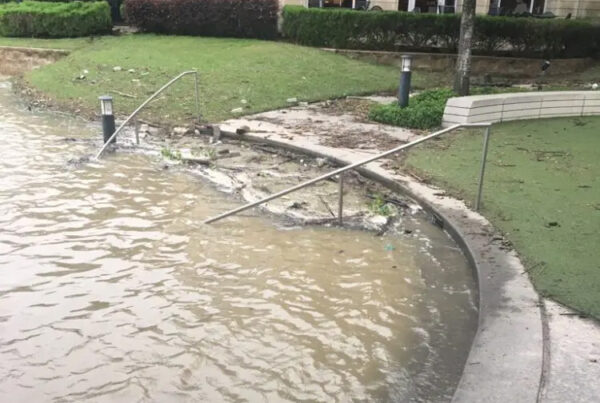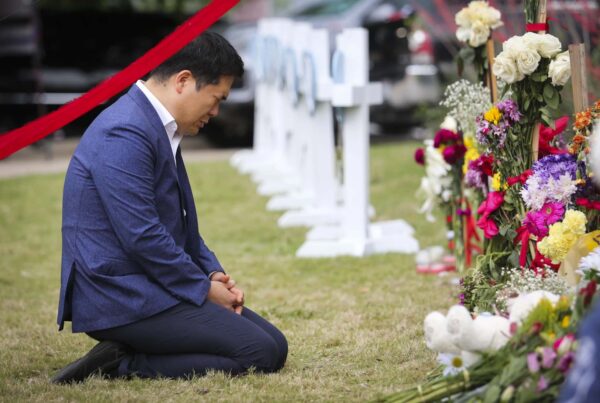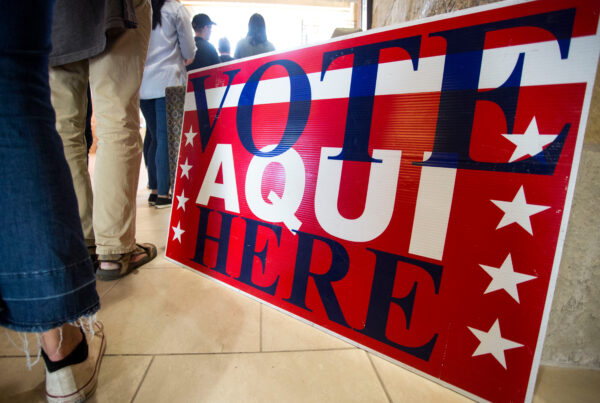The Texas Animal Health Commission received a letter last week from people for the Ethical Treatment of Animals, better known as PETA. The letter detailed the results of a year long investigation by PETA into unlicensed horse racing, which happens at makeshift tracks across the country but, the organization claims, especially in Texas.
The investigation shows just how dangerous these races are for both horses and people.
Kathy Guillermo, senior vice president of PETA, joined Texas Standard to discuss the findings. Listen to the interview above and read the transcript below.
This transcript has been edited lightly for clarity:
Texas Standard: Can you tell us how you conducted this investigation?
Kathy Guillermo: Well, the initial investigation was done in the state of Georgia, which is representative of bush tracks across the country.
We sent investigators to the tracks themselves and to the events – these quarter horse races. We documented with undercover video taken and with collection of samples of syringes to verify the drugs that were made. And then we have verified other situations similar in Texas, largely through video that has been posted online.
And I understand your group identified nearly 50 of these tracks across Texas. How does that compare to other states? You mentioned Georgia.
Georgia has at the moment about four tracks, and Texas, with 50, has about four times as many bush tracks or unsanctioned racing tracks as any other state in the country. So we are particularly anxious for the attorney general, the governor and the Department of Public Safety, as well as the Animal Health Commission, to take action.
We should say, of course, that horse racing is dangerous for animals, even in regulated settings. Dozens of horses have died in recent years at some of the country’s most prestigious tracks. Are there unique dangers, though, to horses at these unregulated venues?
Well, this black market racing has no authority. There is no one looking over anyone’s shoulders to make sure that the laws are being followed, and so they are being flagrantly disobeyed.
And in these races, I should say that these are quarter horses. And on the unsanctioned tracks, two horses race at a time. As they are going down that track, they are constantly whipped and electroshocked to make them go as fast as they possibly can.
Before they’re put on the track, they are openly injected with syringes, and our investigation has showed that these syringes typically contain cocaine, methamphetamine, Ritalin, caffeine, anything they think that will make the horse go faster. Many of them will die right there on the track. Others who have been openly injected with methamphetamine and other street drugs clearly suffer from that.
They’re electroshocked, they’re beaten. Even if we are concerned about what happens in sanctioned horse racing, that is nothing compared to the abuses and the suffering that we see on these tracks. So it’s an appalling picture. It’s a free for all, basically with nobody paying attention to the illegalities.
So what are your accusations here, I guess, if we’re going to get straight to it? Is it that regulators should be aware of this and tracking this more?
Certainly the state officials should be aware and should be investigating.
But we have made very specific allegations. It appears, to us, that this conduct in Texas is violating cruelty to animal statutes, importing horses from out of state without the required documentation. And there’s probably racketeering charges that go along with the unfettered gambling that’s taking place.
I also noticed you detail that when horses cross state lines, there’s supposed to be documentation that animals are up to date on vaccinations. And you found that wasn’t happening here. What sort of risks does that pose?
Every time a horse crosses a state line, they should have a certificate stating that they have been tested for a particular pathogen, for a particular illness that’s very dangerous – equine infectious anemia. And the reason for that is that it can spread rapidly through a horse population, and it can kill many of the horses.
So when these quarter horses are brought in illegally, without the required documentation, without the required testing, they’re not only likely to be sick themselves, but they put every other horse in Texas at risk, too, which is something I think the sanctioned racing industry and anybody who has horses in Texas should be very concerned about.
Well, have you heard back from the Texas Animal Health Commission or any other regulators yet about your findings?
Yes. We have heard back from the Texas Department of Public Safety that they would be notifying the regulators and the investigators in the cities that we documented these tracks and that they, themselves, were looking into a criminal investigation of it.
So we’re obviously very pleased about that and hope that this will lead to something significant and shut down these tracks.














